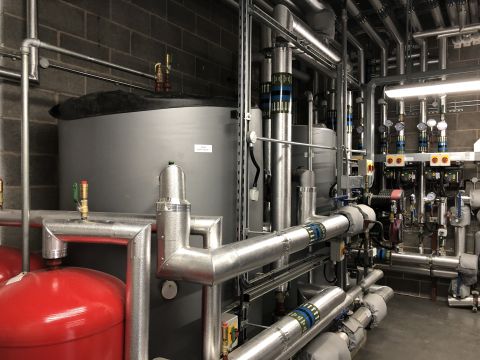Buying guide
Portable Heaters
Things to consider when buying a portable heater
Portable heaters are great for keeping the chill off a room in the warmer seasons when it's not quite cold enough to put on your heating, or are ideal to use in a pinch if your heating starts playing up in the depths of winter. But considering what type of heater to purchase can quickly become overwhelming. This handy guide will help eliminate the jargon and help you decide what heater is best for you and your family.
Where are you going to use it?
Where you are planning on using your portable heater will determine which type to purchase. For example, if you intend to use it in a garage or workshop, you will require a more robust product that has a dust filters like those incorporated in the RUG3TS. But for small bedrooms, a compact heater like the Eco Chico is ideal. If you’re after a heater for general use in living areas, you have a wide choice of all around heaters: fan and ceramic, convectors and radiators.
What type of heat do you want?
There are three main types of heat produced from portable heaters: fanned, radiant and convected.
Fan heaters draw air over a heating element quickly by using a fan to then propel the warmed air out. Radiant heaters create rays of energy that convert to heat once it hits and is absorbed by the body or object, similar to the warmth you feel from the sun, whereas convector heaters heat up the air around you and push it out into the room. The optimum heat type for human comfort is actually a blend of 80% convected and 20% radiant heat, so look for a heater that features a mixture of both technologies like our oil-free eco portable radiators.

GDHV's innovative hot water heat pump technology supports major social housing developer in building to Future Homes Standard (FHS) today
GDHV's innovative hot water heat pump technology supports major social housing developer in building to Future Homes Standard (FHS) today

Why was GDHV's hot water heat pump solution used for the pioneering Project 80?
We recently published the first blog in our series on the ground breaking Project 80 by Midland Heart in Birmingham. This blog explains in more detail why a fully electric solution with a hot water heat pump by Dimplex at its heart was selected as one of the technologies to deliver the objective of the project - homes built to the Future Homes Standard, today.

Heat pumps, heat networks and direct electric heating - should Government mandate where they are used?
During the recent Future Homes Standard consultation, Government showed their support for using heat pumps, heat networks and direct electric heating within future residential developments. But what is the best application for each of these solutions?











